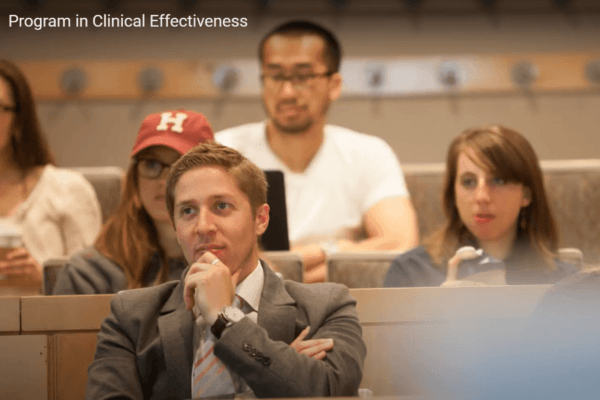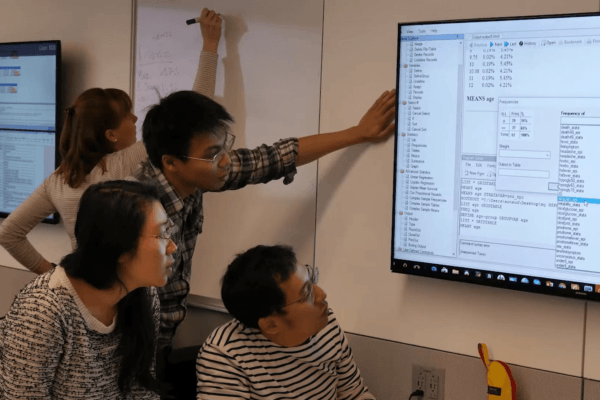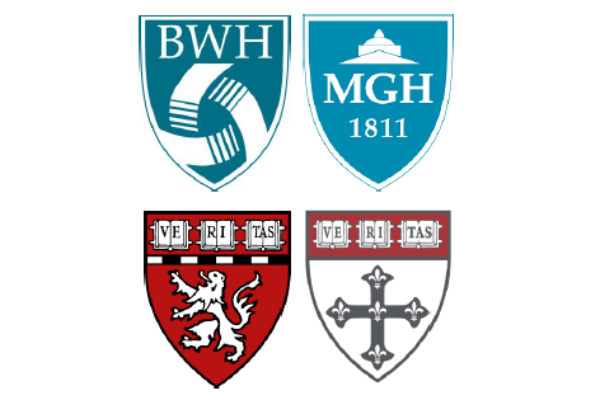July 8 to August 16, 2024
The PCE is designed for physician researchers and other clinical researchers, fellows, faculty, nurse practitioners, and physician assistants seeking quantitative and analytic skills needed for clinical research or interested in health care administration. It is an intensive 15-credit Certificate Program providing clinical investigators with fundamental training in Clinical Epidemiology, Biostatistics, and other skills needed for clinical research.
About the Program in Clinical Effectiveness
Watch our introductory video to learn more about the PCE:
Our Applicants
Ideally, applicants will have a mentored environment in which to apply the skills they have learned during the program. Local applicants should have a position in a clinical department in a teaching hospital; applicants outside the area should be recommended by their affiliated medical school or teaching hospital. Exceptions will be considered on a case-by-case basis. Typically, applicants have completed their medical residency training, however, those who are completing a residency program longer than three years that includes extended time devoted to research training are also encouraged to apply. The PCE does not accept medical students. We encourage applications from individuals from minority groups, but race and ethnicity will not be considered in the selection process. Please review our Application Instructions.
The PCE is fast paced and rigorous and has received excellent evaluations from its alumni. Preferably, students will be free of all clinical responsibilities during the six-week period; this enables students to fully commit to the intense yet rewarding curriculum. For details, please see Workload and Reviews.
Our Curriculum
Core Courses
PCE students are required to enroll in integrated summer-long core courses in Clinical Epidemiology and Biostatistics. These applied courses are directed at clinical investigators and provide the fundamental skills needed for clinical research. These courses are inter-related, present the students with exercises in “active learning,” and provide experience in many aspects of clinical research. Because they are core to the program, they meet daily throughout the six weeks.
For detailed information on classes, please visit: Summer Curriculum.
Elective Courses
All participants in the PCE also take two elective courses, each of which lasts for half of the summer session. For more information, please visit: Summer Curriculum. Course offerings are subject to change.
Advanced Courses
After completing the PCE, qualified degree students may enroll in the advanced courses in a subsequent summer. Students with previous Master’s-level training may qualify for the PCE certificate by replacing PCE core courses with the PCE advanced courses and electives.
For more details on these courses, please visit: Summer Curriculum. Course offerings are subject to change.
Our Students
The PCE is completed by both non-degree and degree students. While it is a non-degree certificate program, many non-degree students ultimately apply for a Harvard T.H. Chan School of Public Health master’s degree after completing the PCE; PCE graduates may transfer tuition and credits to future Harvard Chan School summer-only and specific academic-year degree programs if accepted into these programs within five years of completing the PCE.
The School offers two specifically relevant degree programs targeted towards our students and holds an information session with details on how to transfer PCE credits to a degree program. For details, please see Additional Coursework and Degree Options.
Targeted Degree Programs
The following master’s degree programs were created for PCE graduates:
Summer-focused Master of Public Health – Field of Study: Clinical Effectiveness
Academic-year Master of Public Health – Field of Study: Clinical Effectiveness
Summer-focused Master of Science in Epidemiology
These programs enable PCE graduates to take on-campus courses in subsequent summers or during winter sessions, and to take a limited number of online courses (if space is available) during the fall and spring semesters. Students in the academic-year MPH Program also are required to take on-campus courses during the fall and spring semesters.
For more information about the curriculum and requirements for these programs, please refer to the Clinical Effectiveness MPH Curriculum Guide here. Students in the Summer-focused Master of Science program are able to take online courses. For more information about the Master of Science Curriculum, please visit here.
Harvard University is an equal opportunity employer.






